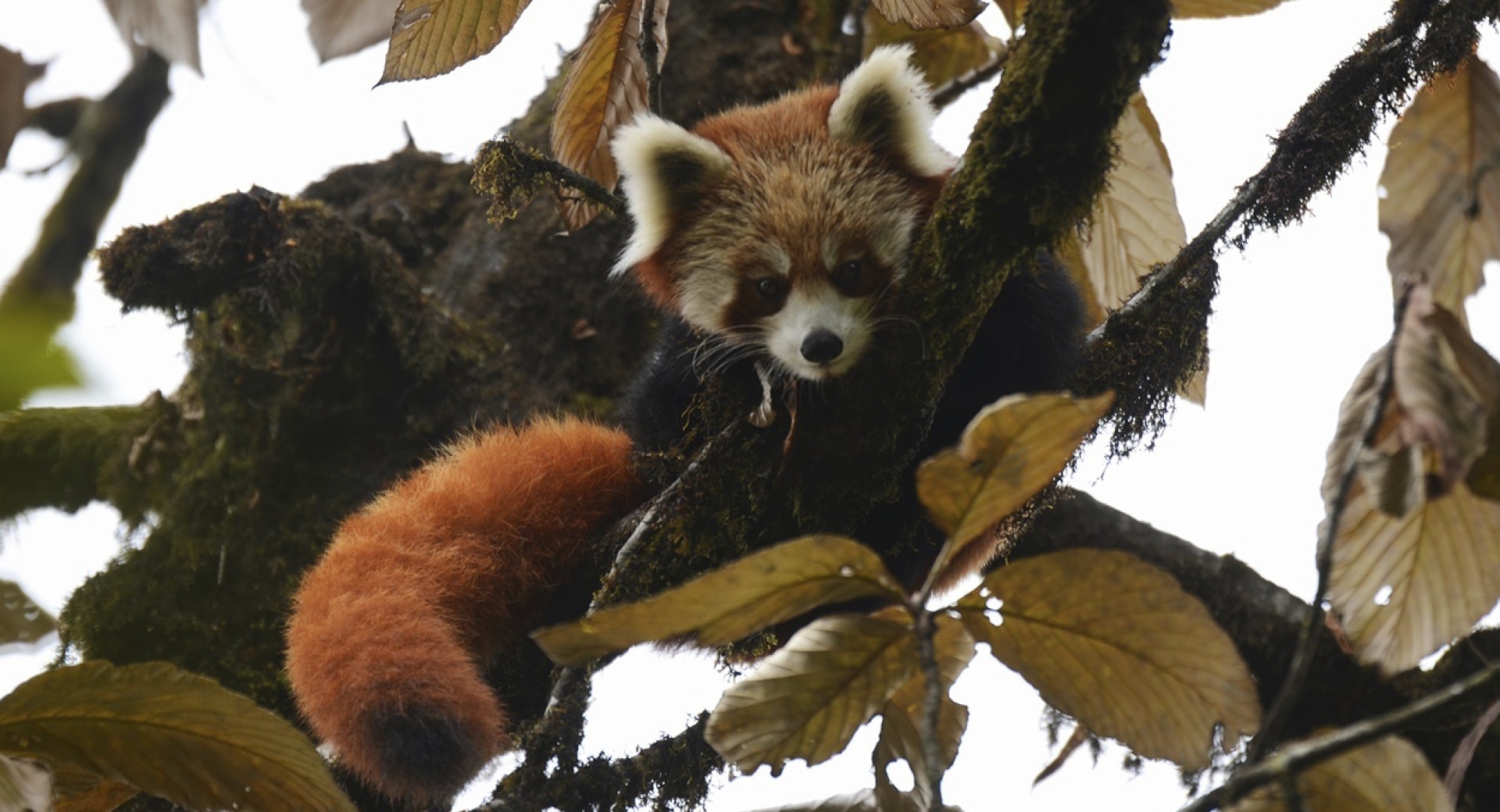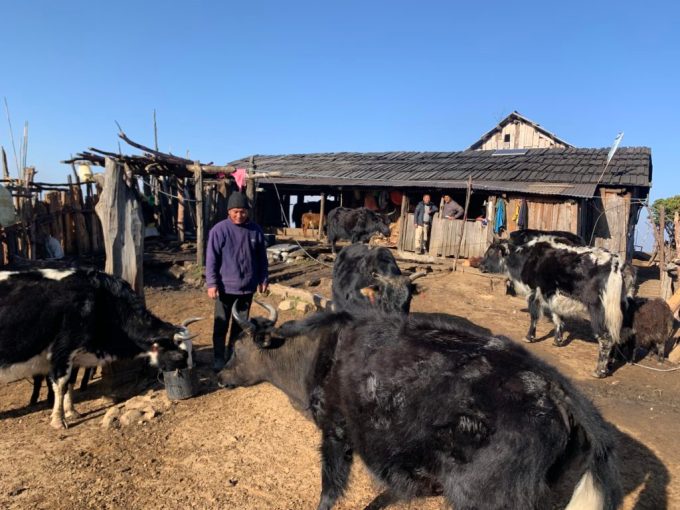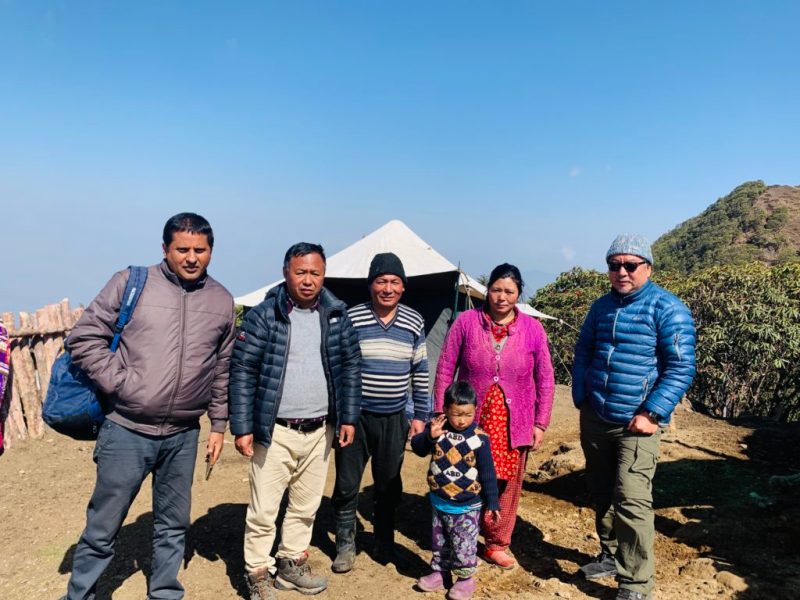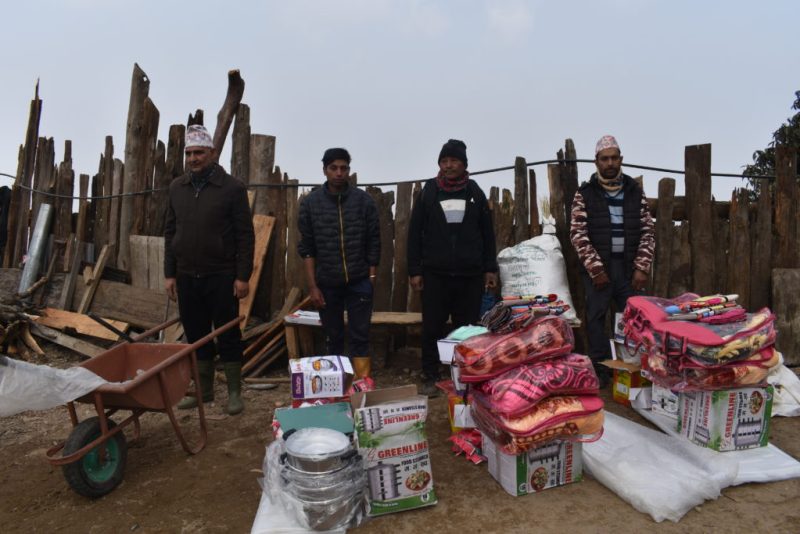
This Endangered Species Day, we have a creative solution to herder poverty and environmental degradation in red panda habitat.
For many generations, animal husbandry has been the predominant occupation for the high-altitude communities in red panda habitat. In our project area in eastern Nepal, each livestock herder has around 30 to 40 Chauri, Yak, horse or other livestock.
However, limited production associated with the traditional herding system and unstable market access for cattle-based products is restricting labor-intensive herding to subsistence living and unsustainable income.
Environmental consequences of traditional herding
In order to earn enough income to survive, herders have to manage large herds of livestock which requires multiple pastures and herding stations (between two and four stations) which they rotate seasonally throughout the year. Essentially, the more livestock, pastureland and herder stations there are, the more deforestation occurs as herders clear-cut forest to create grazing land and cut down trees to build their stations.

Local herder, Rajendra Rai, with his livestock in eastern Nepal.
Maintaining the herder stations requires large amounts of lumber — up to 800 trees — and requires nearly 40 kg (88 pounds) of fuelwood every day for cooking, boiling, space heating, and cheese production.
Cattle graze in red panda habitat and will trample and feed on bamboo and other plant species that red pandas eat. Livestock competes with red pandas and other wildlife as they forage for food (bamboo and other red panda food species) in the forests.
The solution: Goth-stay tourism
We believe goth-stay tourism is the alternative income opportunity that unlocks the full value and potential of livestock herding in rural Nepal and leads to thriving sustainable livelihoods. Goth-stay tourism offers visitors a unique opportunity to experience the rich and authentic culture and tradition of nomadic herders. They will be able to be involved in milking livestock, make and taste organic milk, butter and cheese (chauri); tourists will also have opportunities to ride a horse, learn a new language and experience the rustic, humble-yet-exciting life of a high-mountain herder while appreciating an exclusive experience of local biodiversity.

Ranjendra Rai with his family and goth-stay tourists.
The success of the goth-stay tourism program is dependent on a sustainable supply of products and services. Thanks to the support of our members and partners, we were able to provide livestock herders with portable canvas tents and improved cookstoves which will support goth-stay operations and sustainable livelihoods as well.
We were also able to enhance the capacity and skills of potential goth-stay operators. One three-day training event was organized in Sombare, of eastern Nepal's Panchthar district, which was attended by fifteen livestock herders who learned basic cooking and hospitality, safety, health and cleanliness, and goth-stay tourism management and marketing strategy. A forest conservation workshop was also conducted to educate seventy-eight livestock herders!
Livestock herders in red panda range have to live nomadically, moving between higher pastures in summer and lower valleys in winter. This means they have to live a simple lifestyle with limited resources which creates challenges in accommodating visitors. So, to encourage livestock herders in adopting goth-stay tourism as a new form of income, basic accommodation materials such as kitchen utensils were distributed to five potential goth-stay operators of “Falelung Chauri Palak Samuha”(translated as “Falelung Livestock Herders Group”) which comprised of twenty-nine livestock herders. Three sets of equipment were also handed over to the group to construct a trekking trail that connects the livestock shed/goth to the main village road.

We provided livestock herders in eastern Nepal with blankets and other accommodation materials for goth-stay tourism.
Goth-stay tourism will benefit herders by creating diversified income streams and sustainable livelihoods. The increased income will allow herders to reduce their herd size — demanding less pastureland — while no longer having to rotate between multiple pastures and stations. Goth-stay tourism also encourages herders to build one permanent shed with all basic facilities to accommodate tourists.
Sonam Tashi Lama, the Program Coordinator for Red Panda Network, provides some insight into the situation in eastern Nepal: "They don't want to harm the forest or its inhabitants; herders want to protect the natural world they grew up admiring. This is an effective and responsible way we can give them that opportunity."
Red panda habitat will be protected and ecological integrity will be maintained as herders limit their livestock numbers and seasonal movement which mitigates deforestation and illegal resource harvest.
